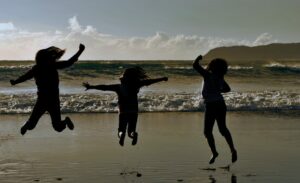The hotel sector in the RD generates some 386,226 jobs, which means that some 110,000 Dominicans are employed in the lodging and food sector in the country, impacting an equal number of families. Of these, 70,974 are women working in hotels, bars and restaurants, and approximately 276,227 people benefit from indirect employment.
Aware of this premise, the Association of Hotels and Tourism of the RD (Asonahores) and the United Nations Children’s Fund (Unicef) signed an agreement to make joint efforts for the promotion of children’s rights in tourist areas of the country, the implementation of family-friendly policies for the benefit of employees in the vacation sector, as well as the prevention of sexual exploitation of children and adolescents in the aforementioned group.
Main objective of Asonahores
“Asonahores’ main objective is to promote and develop actions that encourage the development of the national tourism and hotel industry, as well as to work on strategies and policies that position the RD as a safe destination, and even more, a destination that protects children and adolescents, both national and foreign,” said David Llibre, president of the entity.
 Both Asonahores and Unicef establish through this agreement a collaboration framework taking advantage of their respective expertise, experiences, networks and reach, in order to raise awareness among the members of the aforementioned Tourism Association.
Both Asonahores and Unicef establish through this agreement a collaboration framework taking advantage of their respective expertise, experiences, networks and reach, in order to raise awareness among the members of the aforementioned Tourism Association.
The agreement seeks to promote: the rights enshrined in the Convention on the Rights of the Child; the achievement of the Sustainable Development Goals; support for communities affected by emergencies and disasters; protection against violence, abuse and exploitation; and the implementation of policies with family members for the benefit of employees in the sector.
“With this alliance, both entities seek to develop sustainable tourism that maximizes its positive impact on children and prevents and protects children and adolescents from potential risks. Businesses must play a central role in establishing standards and practices consistent with human rights and in implementing family-friendly policies. This will help reduce parental stress, improve parenting practices and promote the well-being of children by positively impacting their overall development. It will also help increase employee retention and decrease hiring costs, thus stimulating national economic growth,” said Carlos Carrera, Unicef country representative.
Objectives of the collaboration:
– Promotion of children’s rights in tourist areas of the country.
– Implementation of family-friendly policies for the benefit of employees in the tourism sector.
– Capacity building in the sector on sexual exploitation of children and adolescents in tourism.
Collaboration activities include the following:
– Preparation and dissemination of communication and awareness-raising materials on the rights of children and adolescents and early childhood development.
– Advice and technical recommendations and materials on the prevention of sexual exploitation of children and adolescents in its affiliated establishments.
– Promotion of collaboration in the design and execution of policies and initiatives that favor children’s rights in the areas where they work.
– Development of favorable labor policies for families with the objective of guaranteeing the participation of employees in the upbringing and care of their children.
– Development of actions to prevent the sexual exploitation of children and adolescents in the travel and tourism sector.
– Development and implementation of training plans for personnel in the areas of childhood, early childhood development and care, positive parenting, breastfeeding and other topics identified in the framework of this agreement for the benefit of families. As well as managing specialized training actions for child care staff working in the hotels.
Source: Arecoa.com
Know More: Tourism
